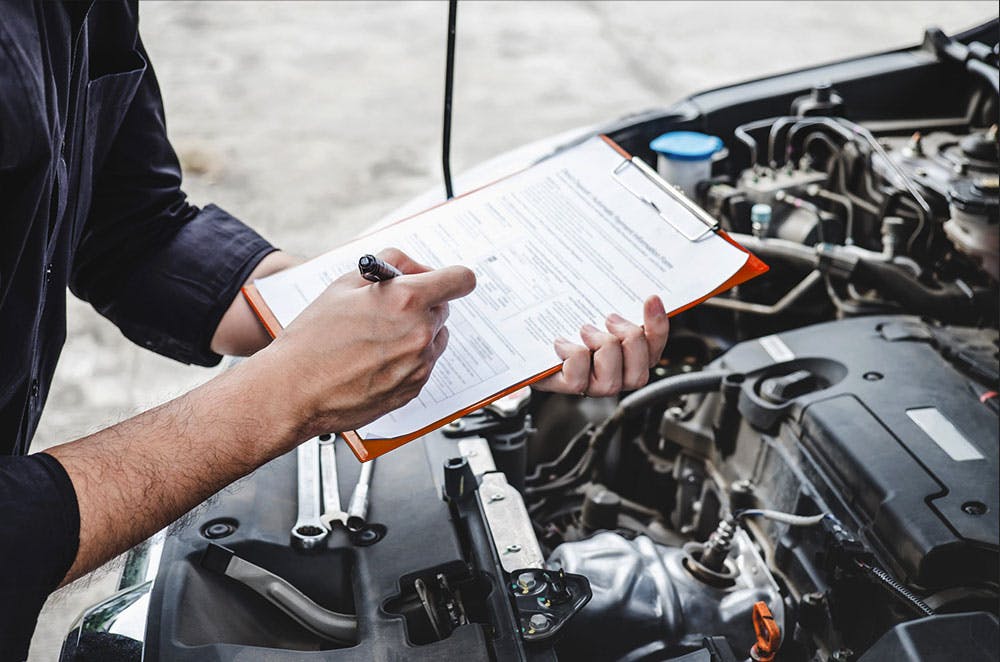All Categories
Featured
Regular tire rotations are a crucial yet often ignored element of vehicle maintenance. This straightforward procedure, which includes altering the setting of your tires, helps preserve also use throughout all 4 tires, inevitably improving your car's efficiency and longevity. Let's discover the relevance of tire turnings and the tangible benefits they give.
What Is a Tire Rotation?
![]()
Tire rotation involves moving the tires to various placements on your car. As an example, the front tires might be switched with the rear ones, or they might be gone across from one side of the car to the various other. The turning pattern depends upon elements like your vehicle's drivetrain (front-wheel drive, rear-wheel drive, or four-wheel drive) and the type of tires you utilize.
Why Are Regular Tire Turnings Essential?
Tire rotations guarantee that all tires use down equally. Unequal tire wear takes place normally due to the fact that different tires experience differing degrees of tension based on their position. As an example:
Front tires on front-wheel-drive vehicles manage more tasks like guiding, stopping, and acceleration, causing them to wear faster.
Back tires on rear-wheel-drive lorries birth similar problems, resulting in irregular wear patterns if left untreated.
![]()
Without regular rotations, some tires may wear too soon, demanding replacement faster than anticipated.
Benefits of Routine Tire Rotations
Improved Efficiency and Handling. Even tire wear aids keep well balanced grip across all four tires. This balance is important for ideal car handling, particularly in tough driving problems such as rainfall or snow.
Extended Tire Life-span. Normal turnings disperse use even more equally, decreasing the requirement for frequent substitutes and saving you cash over time.
![]()
Enhanced Gas Performance. Erratically used tires can enhance moving resistance, forcing your engine to work more difficult and take in even more fuel. Correctly rotated tires guarantee smoother experiences and better gas economy.
Safety. Used tires compromise grip and braking performance, enhancing the risk of accidents. Revolving your tires regularly maintains constant tread depth and makes sure a safer driving experience.
How Often Should You Turn Your Tires?
The majority of professionals recommend revolving your tires every 5,000 to 7,500 miles, yet this can vary based upon your vehicle's manufacturer standards. It's a good method to combine tire rotations with routine solutions like oil adjustments for ease.
Indicators You Required a Tire Turning
Uneven walk endure your tires.
Obvious vibration while driving.
Trouble dealing with the automobile on wet or slippery roads.
Final Ideas
Routine tire rotations are a straightforward yet impactful maintenance task that improves automobile efficiency, boosts safety, and saves you cash. By committing to this technique, you'll appreciate a smoother driving experience and a longer life expectancy for your tires. Consult your vehicle's manual or a trusted auto mechanic to guarantee you're following the best rotation timetable and pattern for your cars and truck.
What Is a Tire Rotation?

Tire rotation involves moving the tires to various placements on your car. As an example, the front tires might be switched with the rear ones, or they might be gone across from one side of the car to the various other. The turning pattern depends upon elements like your vehicle's drivetrain (front-wheel drive, rear-wheel drive, or four-wheel drive) and the type of tires you utilize.
Why Are Regular Tire Turnings Essential?
Tire rotations guarantee that all tires use down equally. Unequal tire wear takes place normally due to the fact that different tires experience differing degrees of tension based on their position. As an example:
Front tires on front-wheel-drive vehicles manage more tasks like guiding, stopping, and acceleration, causing them to wear faster.
Back tires on rear-wheel-drive lorries birth similar problems, resulting in irregular wear patterns if left untreated.

Without regular rotations, some tires may wear too soon, demanding replacement faster than anticipated.
Benefits of Routine Tire Rotations
Improved Efficiency and Handling. Even tire wear aids keep well balanced grip across all four tires. This balance is important for ideal car handling, particularly in tough driving problems such as rainfall or snow.
Extended Tire Life-span. Normal turnings disperse use even more equally, decreasing the requirement for frequent substitutes and saving you cash over time.

Enhanced Gas Performance. Erratically used tires can enhance moving resistance, forcing your engine to work more difficult and take in even more fuel. Correctly rotated tires guarantee smoother experiences and better gas economy.
Safety. Used tires compromise grip and braking performance, enhancing the risk of accidents. Revolving your tires regularly maintains constant tread depth and makes sure a safer driving experience.
How Often Should You Turn Your Tires?
The majority of professionals recommend revolving your tires every 5,000 to 7,500 miles, yet this can vary based upon your vehicle's manufacturer standards. It's a good method to combine tire rotations with routine solutions like oil adjustments for ease.
Indicators You Required a Tire Turning
Uneven walk endure your tires.
Obvious vibration while driving.
Trouble dealing with the automobile on wet or slippery roads.
Final Ideas
Routine tire rotations are a straightforward yet impactful maintenance task that improves automobile efficiency, boosts safety, and saves you cash. By committing to this technique, you'll appreciate a smoother driving experience and a longer life expectancy for your tires. Consult your vehicle's manual or a trusted auto mechanic to guarantee you're following the best rotation timetable and pattern for your cars and truck.
Latest Posts
Find Out the Montclare Advantage - Trusted Auto Repair
Published Apr 19, 25
2 min read
Full Circle Strategic Marketing - Expand Sales Opportunities with Targeted Marketing Solutions
Published Apr 19, 25
2 min read
Save Big with Montclare Auto Repair Offers - Available for a Short Time!
Published Apr 18, 25
2 min read
More
Latest Posts
Find Out the Montclare Advantage - Trusted Auto Repair
Published Apr 19, 25
2 min read
Full Circle Strategic Marketing - Expand Sales Opportunities with Targeted Marketing Solutions
Published Apr 19, 25
2 min read
Save Big with Montclare Auto Repair Offers - Available for a Short Time!
Published Apr 18, 25
2 min read